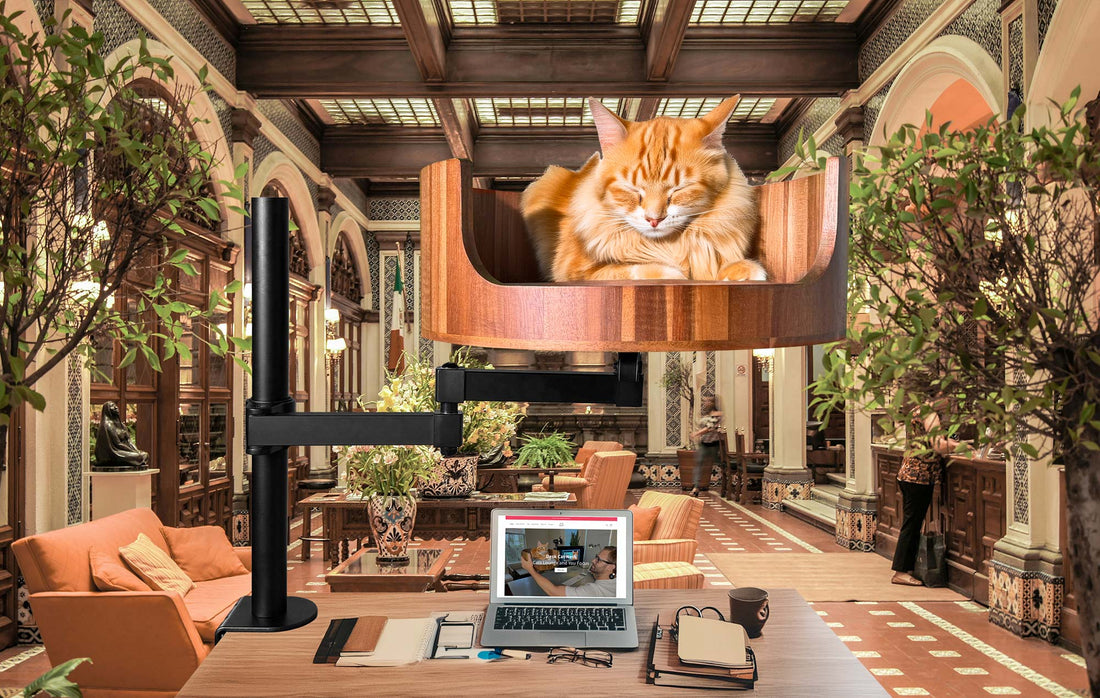
My Cat Ate a Spider and Is Throwing Up: What to Do?
Share
If you have ever found your cat chewing on a spider and then later throwing up, you are not alone. Cats are natural hunters and can be quite curious when it comes to exploring their surroundings. However, ingesting a spider can lead to various complications, including vomiting. In this article, we will discuss what you should do if your cat eats a spider and is experiencing vomiting as a result.
First and foremost, it is important to ensure the safety and well-being of your feline friend. We will explore the potential reasons why your cat may have hunted and eaten a spider, as well as the dangers of spiders for cats. Additionally, we will provide step-by-step guidance on how to handle the situation if your cat is throwing up after consuming a spider. Understanding the symptoms to look out for and when to seek veterinary care will be crucial in ensuring the health of your pet. Stay tuned to learn how to best care for your cat in this situation.
1. Monitor your cat closely for any signs of distress, such as vomiting or lethargy, after consuming a spider.
2. Contact your veterinarian immediately if you suspect your cat has ingested a poisonous spider.
3. Provide a comfortable and quiet environment for your cat to rest and recover.
4. Keep your home spider-free by regularly cleaning and using pest control measures.
5. Consider using cat-safe deterrents to prevent future incidents of spider ingestion.
Recognizing the Signs of Spider Poisoning in Cats
When a cat eats a spider, it may result in poisoning due to certain toxins present in the spider's venom. One common sign of spider poisoning in cats is vomiting. If your cat has ingested a spider and is now vomiting, it is essential to closely monitor their behavior for other symptoms such as lethargy, drooling, trembling, and difficulty breathing. These signs may indicate that the spider's venom has affected your cat's nervous system or other vital organs.
Immediate Steps to Take After Your Cat Ate a Spider
If you suspect that your cat has eaten a spider and is now experiencing symptoms of poisoning, it is crucial to act quickly. First, remove any remaining spiders or spider webs from your home to prevent further ingestion. Next, contact your veterinarian or the nearest animal poison control center for guidance on how to proceed. They may recommend inducing vomiting, providing activated charcoal, or bringing your cat in for immediate medical attention.
Treatment Options for Spider Poisoning in Cats
The treatment for spider poisoning in cats will depend on the severity of the symptoms and the type of spider your cat ingested. In mild cases, your veterinarian may recommend monitoring your cat at home and providing supportive care such as fluids and antiemetics to help with vomiting. In more severe cases, your cat may require hospitalization for intensive care and administration of specific antidotes to counteract the spider venom. It is crucial to follow your veterinarian's instructions carefully to ensure your cat's speedy recovery.
Frequently Asked Questions
Is it normal for my cat to throw up after eating a spider?
It is not uncommon for cats to vomit after ingesting a spider. The spider may have been toxic or caused an allergic reaction, leading to stomach upset. It is important to monitor your cat's symptoms and seek veterinary attention if vomiting persists.
Will the Desk Cat Nest help prevent my cat from eating spiders?
The Desk Cat Nest can provide a safe and comfortable space for your cat to rest and play, reducing the chances of them coming into contact with spiders. However, it is not a foolproof solution for preventing your cat from hunting and eating insects around your home.
How can I help my cat if they are throwing up after eating a spider?
If your cat is vomiting after ingesting a spider, it is important to monitor their symptoms closely. Provide them with fresh water and monitor their behavior. If vomiting persists or if your cat shows signs of distress, it is best to consult a veterinarian for further advice and treatment.
Are there any risks associated with cats eating spiders?
While not all spiders are toxic to cats, some species can be harmful if ingested. It is important to keep an eye on your cat's behavior after ingesting a spider and seek veterinary help if necessary. In some cases, spider bites can cause allergic reactions or other complications in cats.
In conclusion, providing your cat with a comfortable and safe space to rest and relax, such as a Desk Cat Bed, can help alleviate the stress and discomfort caused by ingesting a spider. The elevated platform of the Desk Cat Bed not only offers a secure spot for your feline friend to rest, but also reduces the likelihood of encountering spiders or other harmful insects. Additionally, the soft and cozy materials of the bed promote relaxation and can aid in digestion, potentially reducing the chances of your cat throwing up. Investing in a Desk Cat Bed is a valuable choice that can benefit both your cat's physical and mental well-being.



















































